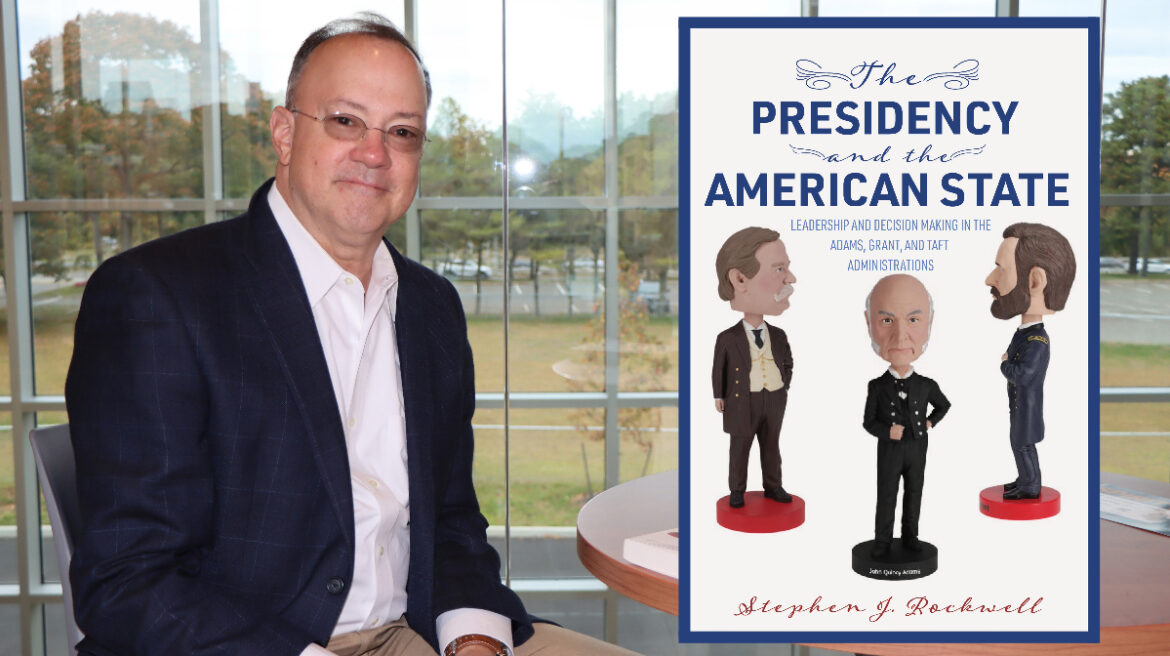St. Joseph’s University, New York’s Stephen Rockwell, Ph.D., professor of political science, published in October his latest book: “The Presidency and the American State: Leadership and Decision Making in the Adams, Grant, and Taft Administrations.”
The book, published by the University of Virginia Press, has been 13 years in the making, with Dr. Rockwell beginning the research phase shortly after publishing his previous book.
“The book challenges interpretations of the presidency that see most nineteenth-century presidents as weak and clerk-like, dominated by Congress, the courts and political parties,” explained Dr. Rockwell, who has taught at SJNY’s Long Island Campus for 17 years.
Dr. Rockwell examines just how influential and independent John Quincy Adams, Ulysses S. Grant and William Howard Taft were.
“Study of American political and state development has revealed extensive national governance in the nineteenth century on issues like westward expansion, land policy, economic regulation and social programs,” Dr. Rockwell said. “I wanted to see how incorporating this new body of knowledge might affect traditional understandings of American institutions like the presidency.”
Key Takeaways
One of the biggest aspects Dr. Rockwell wants his readers to take away from his latest book is that, overall, presidency hasn’t changed much in the United States since George Washington’s administration.
“When we examine the key issues of the nineteenth century, such as slavery, westward expansion, Native American affairs, and trade regulation, we see presidents promoting legislation, leading administrative agencies, fighting wars, using public communication, and deploying executive action tools like executive orders,” he explained. “Many scholars have seen these techniques as characteristic only of a “modern” presidency, but early presidents behaved in strikingly similar ways.”
The second major takeaway for readers is Dr. Rockwell’s examination of three different models of presidential leadership and decision making.
“Adams was a stickler, dedicated to following established rules and procedures throughout his life and in his presidency,” Dr. Rockwell said. “Grant was what I call a principled innovator, relying less on rules and more on his own best judgment and values to decide what was right, in a time of great upheaval. Taft was what I call a synthesist, combining both of these approaches, as many of our greatest presidents have done.”

